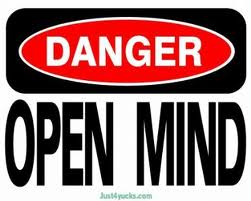 The year was 1992, and I had just written an investigative story laying out the failings of a landlord in Elgin.
The year was 1992, and I had just written an investigative story laying out the failings of a landlord in Elgin.
On the phone, his son was irate, arguing that I hadn’t given his dad a fair shake – that the piece that appeared on the front page of The Courier News wasn’t balanced.
I explained that I’d tried to include his father’s side of the story, but that he’d declined repeated opportunities to do so. And I re-extended the invitation for his father (or this evidently talkative son himself) to be interviewed for a follow-up story.
He loudly, angrily refused as he instead tried to bait me into an argument. Whereupon, I thanked him for his feedback. I wasn’t being dismissive or condescending–I was sincerely interested in exploring whether I had in some way fallen short of treating his father fairly.
In the end, reassured by the absence of substantive criticism from the caller, I was satisfied that I had indeed been fair and professional. Meanwhile, the furious family member was incredulous that I wouldn’t get drawn into a shouting match. My placid response made him even more livid and me even more determined to remain calm.
He was angling for more confrontation; I was angling to get off the phone and onto the next story.
Having a thick skin is an imperative for journalists. Same goes for those in public relations and marketing, whether you are dealing with a client whom you believe is overbearing or a reporter who brushes off a story pitch.
Two years ago, one of my clients at the time, Chicago-based EnergyMen, was repeatedly pressing me to secure more media coverage on its behalf. And with justification–they had made an initial financial investment and news placements are a central tangible evidence of return-on-investment.
Rather than get defensive, I got even busier with media outreach, securing print placement in several regional publications, including the Chicago Tribune. In addition, I took steps to create plenty of content, from photo galleries on the Tribune website to videos on a YouTube channel that I created to client testimonials, all of which remain available for EnergyMen’s prospective clients to view.
Sure, the experience of being criticized made me uncomfortable. More importantly, though, it made me better. And that growth came not only on the content-creation and media-outreach side. I also learned an important administrative lesson from the engagement: even in the midst of a client’s stated dissatisfaction, stand firm on receiving payment in a timely manner.
Some will use that discontent as justification for delaying or withholding your fee. (So far, choosing to don my eternal optimist hat, I like to view EnergyMen’s failure to pay for two out of six months’ service as a protracted delay, not an outright stiffing.)
As I have long advised all clients, results are not guaranteed, but persistent, professional effort is, and needs to be compensated.
So in 2013, resolve to see the good in those moments when someone’s input is threatening to get under your skin. It will make your skin thicker, and, particularly in those instances when the feedback has validity, it will make your work better.
